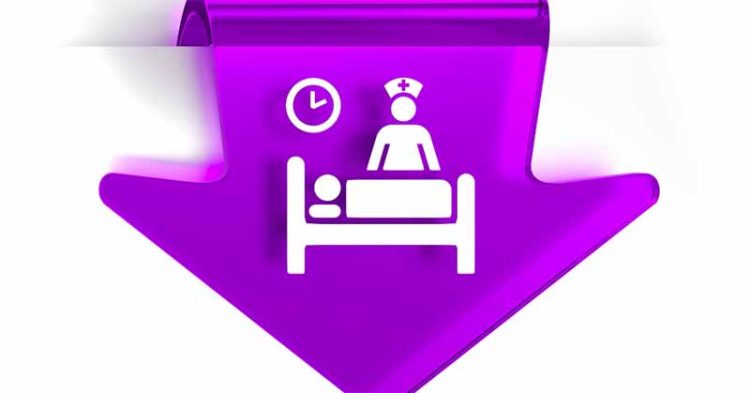
Inpatient residential treatment provides a comprehensive approach to the treatment of addiction. This type of program uses many therapeutic approaches, including family therapy, individual therapy, music therapy, and group therapy. Read on to learn more. Here’s why inpatient residential treatment may be the best choice for you.
Structured schedule
Inpatient residential treatment consists of a structured schedule containing daily sessions. Although the schedule may be adjusted from time to time, it is usually designed to keep patients busy and focused on recovery. It is also a useful tool for staying in recovery once you leave treatment. In this article, you’ll learn more about the elements of the structured schedule for residential treatment. It is important to choose a residential treatment center carefully because the type of schedule will vary depending on the particular program and patient’s needs.
The most important aspect of structured schedules in residential treatment centers is that patients wake up at the same time each day and participate in the daily routine. They are required to attend scheduled therapy sessions and participate in household duties. They also have designated free time for leisure activities and exercise. Because these routines are so important for recovery, residential treatment programs may also include group field trips and fitness activities for clients. In addition, the treatment programs may integrate various services outside of individual therapy.
24-hour supervision
While family doctors may not have the expertise to treat mental illness, they can rule out physical causes of mental health problems. Inpatient residential treatment programs provide 24-hour supervision and support to clients, often more effective than hospital care. Here are some factors to consider before selecting a residential treatment program. Read on to learn more. If you’re considering residential treatment, talk to a mental health professional and see if this option is right for you.
Depending on the nature of the issue, residential treatment can be in the form of group or individual therapy, as well as medical staff. While there are a few factors that determine whether a patient should receive residential treatment, the main factor is the level of medical stability. Residents who are medically stable can move onto residential care, which is tailored to the needs of adolescents and children. Additionally, the treatment program is gender-specific, enabling residents to process anger in a healthy and supportive environment.
Inpatient residential treatment centers offer more intensive care for those suffering from a co-occurring disorder such as alcohol or drug addiction. A 24-hour staff monitors the patient’s progress and ensures adherence to medication.Additionally, family members are allowed to stay overnight with the patient, if they choose. They can also participate in Co-occurring dual diagnosis treatment.
While residential treatment is not suitable for all individuals, it offers a stable environment for those struggling with severe mental health problems. The 24-hour supervision in a residential treatment program provides an environment that promotes a positive recovery environment. It also allows clients to interact with other clients in a structured setting. They are able to receive unique support and help each other. You can count on this level of care for the lifelong health of your loved one.
Support system
Inpatient residential treatment programs are generally conducted in a trauma-informed environment. They are designed to include family members in the treatment process. Some residential treatment facilities are not hospital-based, and offer psychiatric care as well. The staff at an inpatient residential treatment center will meet with patients and families individually or in groups. The program should provide enough structured activities to support patients’ recovery, while also leaving enough time for free time.
Residential treatment centers may vary, but most offer some level of 24-hour support to their patients. While this may feel like an invasion of privacy, it’s crucial to help patients track their progress, identify areas of struggle, and prevent relapse. Moreover, the distance from a previous life helps patients develop discernment and healthier relationships. This is especially true if the individual has a history of substance abuse. The same goes for family members who have a history of addiction.
Partial hospitalization programs are a good alternative to inpatient residential treatment. In these programs, the client will receive intensive 24-hour care while living in a structured environment. The program will prepare them for independent living. However, unlike inpatient care, most residential care programs are temporary and last only a few weeks. In some cases, they may last indefinitely. In addition to residential treatment, these programs may include supportive housing.
A supportive environment is crucial for recovery. Whether it’s family members, friends, or the community, a supportive community is crucial for the recovery process. This is especially important during the difficult transition back to daily life, and social support can help reduce the risk of relapse. However, there are still ways to maintain a supportive environment in your community, as well as create a better environment for those who live in the community.
Medical care
It also includes a wide range of activities aimed at treating the body and mind, including psychoeducational sessions, counseling, and group therapy. Many programs include holistic treatments, such as massage and yoga. Patients in residential treatment programs typically stay in the program for several months or longer. These programs often include family participation. To get started on the right foot, choose an inpatient residential program that meets your needs and is located in a comfortable and supportive environment.
Private health insurance covers residential treatment programs but not the living arrangements. However, these programs may be more expensive than inpatient residential treatment options. Medicaid programs pay for health care services in residential settings but not for living expenses. However, Medicaid does not cover residential psychiatric services under their rules. Nevertheless, Medicaid may cover some of these services. However, it’s important to note that residential care does not always qualify as outpatient care.
Inpatient residential treatment centers offer intensive treatment for patients with severe mental disorders. While the facility is typically closed and offers little opportunity for patients to leave, many inpatient residential treatment facilities offer 24-hour supervision and treatment. Although there are no mandatory hospitalization requirements, residential treatment facilities may provide patients with intensive mental health treatment for months. A comprehensive assessment of the quality of care offered at residential treatment facilities will help the state make decisions about whether they are the right choice for their needs.
A lack of research and data is the primary challenge in improving residential mental health care. This is one of the reasons that residential treatment has not been included in many recent efforts to improve care in hospitals. While most of these efforts have focused on hospital-based general medical care, residential care is often overlooked as it lacks the evidence base for such changes. Further research is needed to identify the problems and develop solutions. This article provides an overview of some of the issues facing residential care.
Residential detoxification programs vary widely in their level of care. Some inpatient residential treatment facilities offer 24-hour medical supervision, while others are more limited in their level of care. It is important to choose a facility that offers clear policies and procedures for a referral to a medical facility when needed. The purpose of residential detoxification is to stabilize symptoms and develop a continuing treatment plan. Inpatient residential treatment is often short-term and is the most effective option for people with severe mental health problems.

















